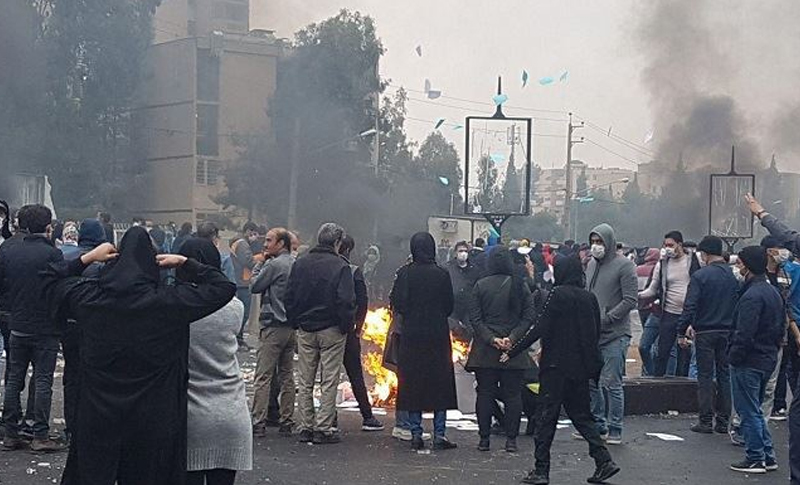
By Navid Felker
Over 250 protesters were arrested in Kermanshah Province alone during the November uprising, according to Ali Akbar Javidan, the head of state police there, who was quoted in a report on Wednesday by the Fars news agency.
Javidan described those arrested as “riot leaders”, saying they “instigated” other people, especially the youth, to join the protests. These comments actually belie just how much the people, especially the young, hate the mullahs’ regime.
Javidan said the 250 protests are being charged with:
- causing riots
- instigating the public to protest
- destroying public property, including government buildings and vehicles
- attacking police officers and members of the IRGC Basij
- spreading propaganda on the internet
To be clear, attacking government property, mainly that belonging to the suppressive security forces, is a way for the people to show their anger at the regime. As for attacking the police and security forces, let’s consider that the regime’s agents were shooting at protesters and they responded by throwing stones and whatever they had.
He then claimed that the protesters had “connections with terrorist groups and enemies of the [state]”, which is frankly unsurprising considering that the regime considers any opposition to their rule a terrorist activity.
Plenty of other officials have made similar claims about arresting the leaders of the protests in order to create a climate of fear and stop people from continuing the protests, but yet more officials are showing that they are scared that the crises have not been contained.
Mohammad Ali Jafari, a former IRGC commander, said: “In this period, all the threats against the Islamic Revolution persist. The military threat of our enemies still hangs over our heads. You can also see the security threat. They’re using every opportunity to cause insecurity.”
While other authorities admitted that the regime is scared of organized protests and the rising influence of Iranian opposition People’s Mojahedin Organization of Iran (PMOI/MEK) across the country.
Mehdi Amiri Isfahani, the security deputy of the general prosecutor, told a briefing conference with foreign ambassadors on Wednesday: “The [MEK] had created networks in the fringes of cities and had attracted 18-20-year-old youth to create organized groups for the riots.”
The state-run ISNA news agency quoted Amiri Isfahani, as claiming that the MEK had demanded their supporters “attack the national broadcasting station and fuel storage centres”, saying their goal was to attack military centres and obtain weapons”.







